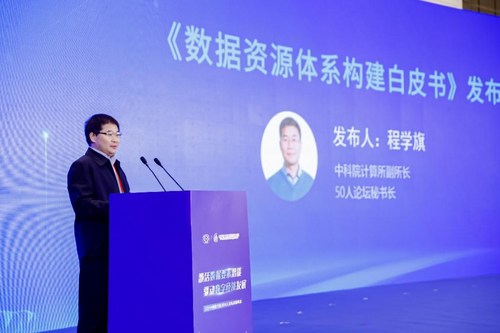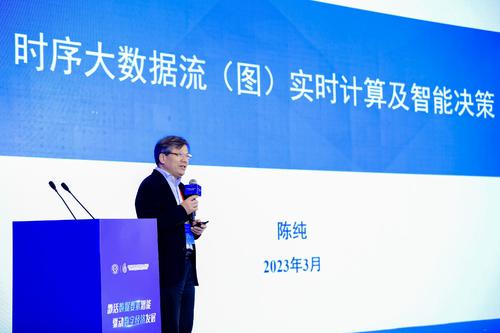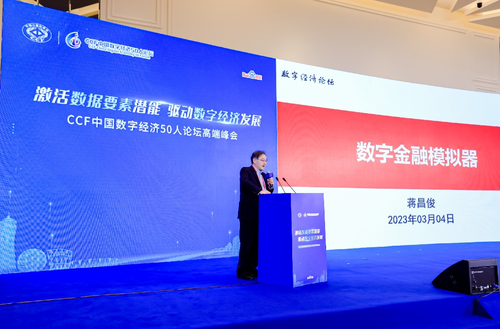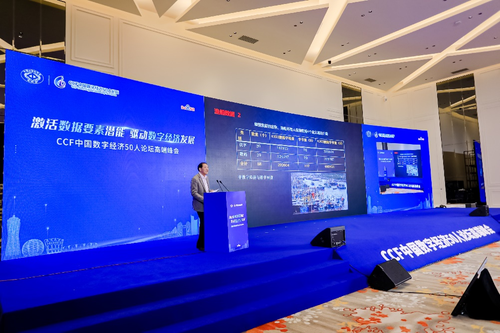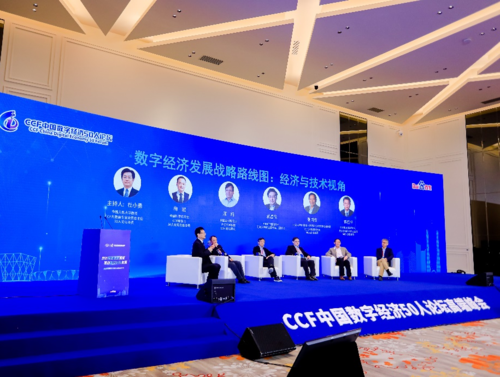Activate Potential of Digital, and Drive Digital Economy
2023-04-03
The summit of CCF China Digital Economy 50 Forum (hereinafter referred as "Summit") was successfully held in Hangzhou, Zhejiang Province on March 4, supported by Hangzhou municipal government, jointly organized by the organizing committee of CCF China Digital Economy 50 Forum (hereinafter referred as "50 Forum"), the Institute of Advanced Information Technology at Zhejiang University, and the Zhejiang Visual Intelligent Manufacturing Industry Innovation Center.
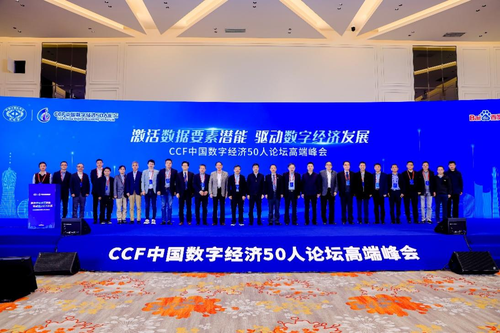
Jin Hai, VP of CCF, and member of "50 Forum" presided over the opening ceremony of the summit. Wang Min, member of the Standing Committee of the Hangzhou Municipal Party Committee, and Mei Hong, academician of CAS, President of CCF and chairman of 50 Forum, delivered speeches in the opening.
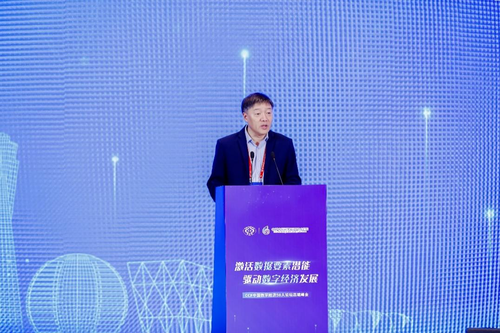
Jin Hai, Professor of Huazhong University of Science and Technology
Wang Min, secretary of Party committee of Xiaoshan District, shared latest achievements of Xiaoshan District in the development of digital economy in the past few years, and highly praised the progress of the "50 Forum" in the past year, and welcomed experts, scholars, and business owners to visit Xiaoshan regularly for exchanges.
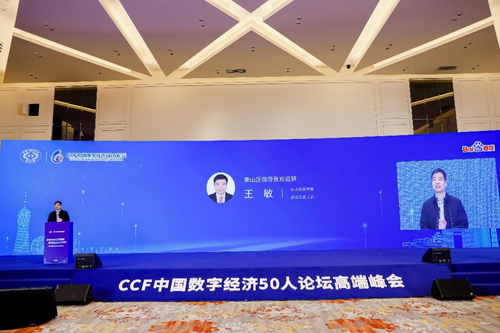
Wang Min, Secretary of Party Committee of Xiaoshan District
Academician Mei Hong stated in his speech that building digital China and developing the digital economy has become a strategic choice for the country. 20 Articles of Regulation on Data have anchored the goals and pointed out the ways for the development of China's digital economy. He believes that the 20 Articles of Regulation on Data are a crucial step towards data element transformation, highlighting development orientation, facilitating operability, and enough space for innovation.
At the same time, Academician Mei Hong also proposed several issues worth further research and exploration in future construction, such as the open sharing of original public data, the construction layout of data trading venues, and the marketization and convenience of over-the-counter transactions.
The digital economy involves numerous issues and requires experts, including 50 Forum, to study from different perspectives in order to construct a panoramic view of the digital economy.
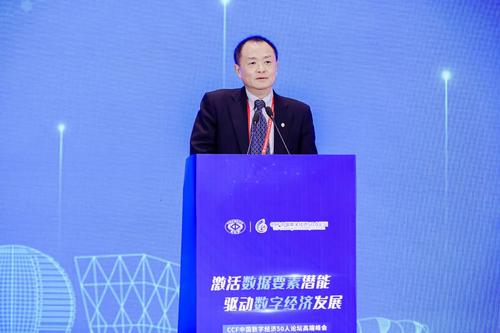
Mei Hong, President of CCF
按住图片左右滑动
1、Cheng Xueqi, Deputy Director of the Institute of Computing Technology, CAS, and Secretary General of the 50 Forum, released the research results of the 50 Forum for 2022- "White Paper on Building a Data Resource System".
2、Academician Chen Chun gave a keynote speech of "Real time Computing and Intelligent Decision Making of Time Series Big Data Flows (Graphs)".
3、Academician Jiang Changjun gave a report titled "Digital Financial Simulator".
4、Professor Zhang Guoyou delivered a keynote speech titled "The Source Structure of Fishing Vessel Data and Digital Issues".
5、Panel:Strategic oadmap for the evelopment of Digital Economy, moderator: Professor Du Xiaoyong
Background of 50 Forum:
In December 2021, the 50 Forum was launched by the China Computer Federation, Peking University, Tsinghua University, Renmin University of China, Institute of Computing Technology of the Chinese Academy of Sciences and other research institutes.
Hangzhou Municipal People's Government is the strategic partner of the 50 Forum. The 50 Forum is chaired by Academician Mei Hong, with academicians and scholars from fields such as information science, economics, management, and law, as well as vice presidents/senior technical experts from multiple leading ICT companies, serving as the initial members.
The aim of 50 Forum is to organize high-end summits, cutting-edge symposiums, international exchanges and various activities to form research results such as reports, suggestions, proposals, and white papers, offer objective, independent, and scientific development strategy suggestions to the central government, relevant regulatory departments, and industry institutions, form cross-border, neutral, and influential digital economy consulting and research capabilities, and contribute to China's digital economy construction.



